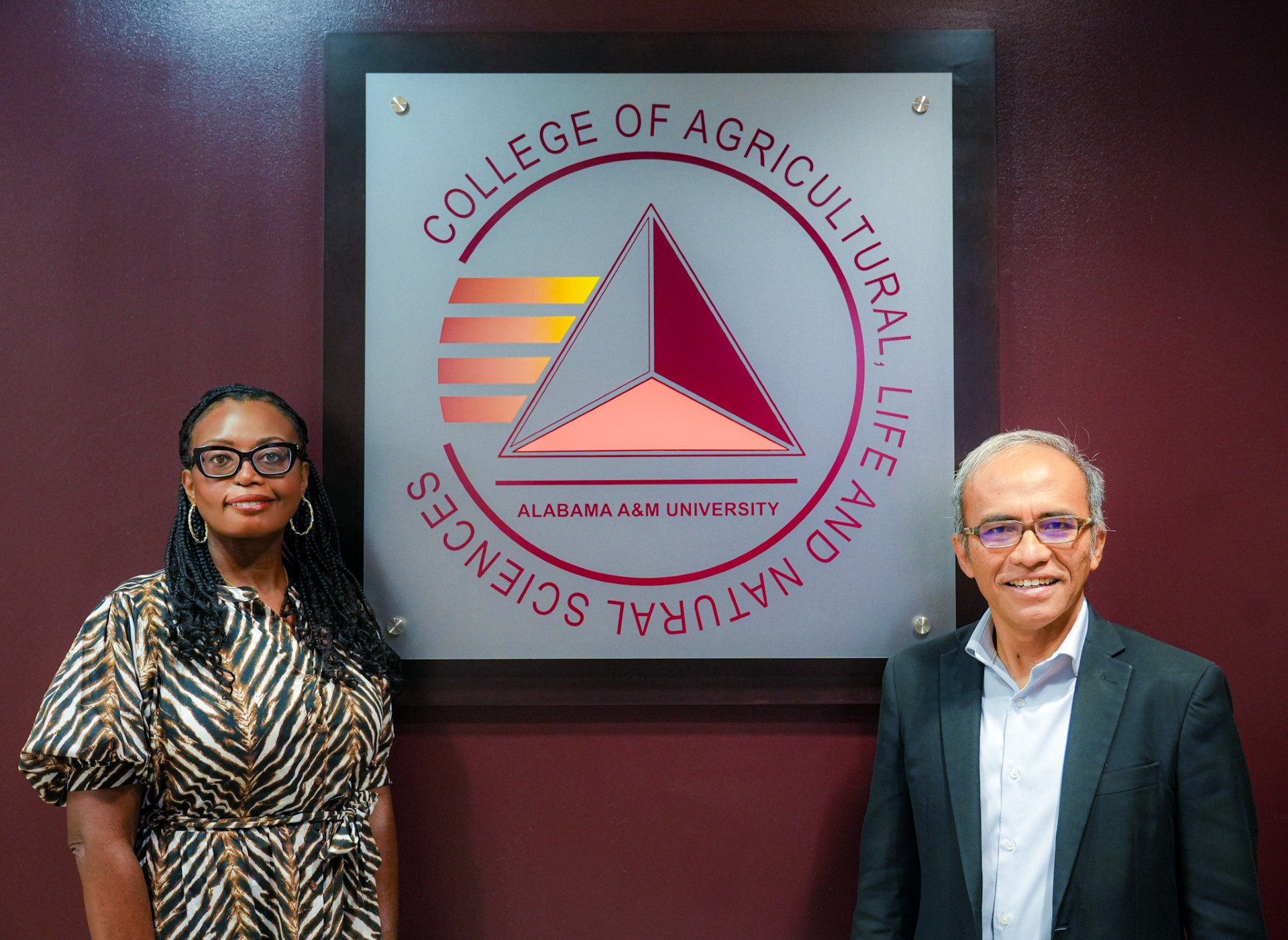Innovative Effort Turns Waste into Construction Materials, Aiding Minority Communities

Researchers at AAMU Secure $1M NSF Grant for Pioneering Climate Change Mitigation Project
The National Science Foundation (NSF) has awarded Alabama A&M University a $1 million grant for the project, “Transforming Wastes into Economic Assets for Sustainability, Resilience, and Prosperity by a Novel Negative Emission Technology.” In collaboration with the University of Alabama (UA), University of New Mexico (UNM), and University of Idaho (U of I), this initiative aims to convert hazardous industrial wastes into eco-friendly construction materials using cutting-edge Negative Emission Technology (NET).
“This project addresses the urgent problems caused by hazardous industrial waste and climate change, which disproportionately impacts low-income and BIPOC (Black, Indigenous, and People of Color) communities due to social and economic inequality,” explains Dr. Elica Moss, Alabama A&M research assistant professor and the project’s principal investigator. “By transforming biomass and industrial wastes into affordable, green construction materials, we are not only promoting environmental justice, but also enhancing resilience to climate-related issues.”
The four-year grant begins next month, with Alabama A&M receiving $250,000 this year and $1,000,000 through August 2028. Dr. Deden Rukmana, serving as senior personnel on the project, will work with the partnering universities to develop strategies for retrofitting buildings in the targeted communities, enhancing their resilience.
Alabama A&M undergraduate and graduate students will be actively involved in the project. Workforce development programs will include early career faculty development, K-12 education, and teacher training, aiming to support STEM jobs and education in underrepresented areas. Students will gain hands-on experience in infrastructure materials development, testing, and 3D printing, and will be engaged with communities in the Black Belt region through site visits and potential internships.
“This study requires extensive laboratory work, making it ideal for undergraduate students to participate and acquire technical skills related to infrastructure materials,” says Moss. “Students will present their findings at technical conferences and attend workshops to improve specific skills, such as effective science communication.”
The initiative will also train a diverse group of MS, Ph.D., and postdoctoral students in developing resilient solutions for infrastructure needs using sustainable, circular materials. The research has high commercialization potential, fostering an environment that promotes entrepreneurial training through programs established at the University of Alabama.
Additionally, PIs from UA, UNM, and the University of Idaho will actively recruit Alabama A&M undergraduates as master’s or Ph.D. students to work on this project. The ultimate goal of this collaboration is to establish a new pathway to mitigate the harmful impacts of climate change on low-income and BIPOC communities.
“The low-carbon building products developed in this study can enhance the climate resilience of these communities,” adds Moss. “This award will provide a long-term solution for handling biomass and industrial waste, promoting STEM education in sustainable construction materials and circular economy practices, directly benefiting the targeted communities.”